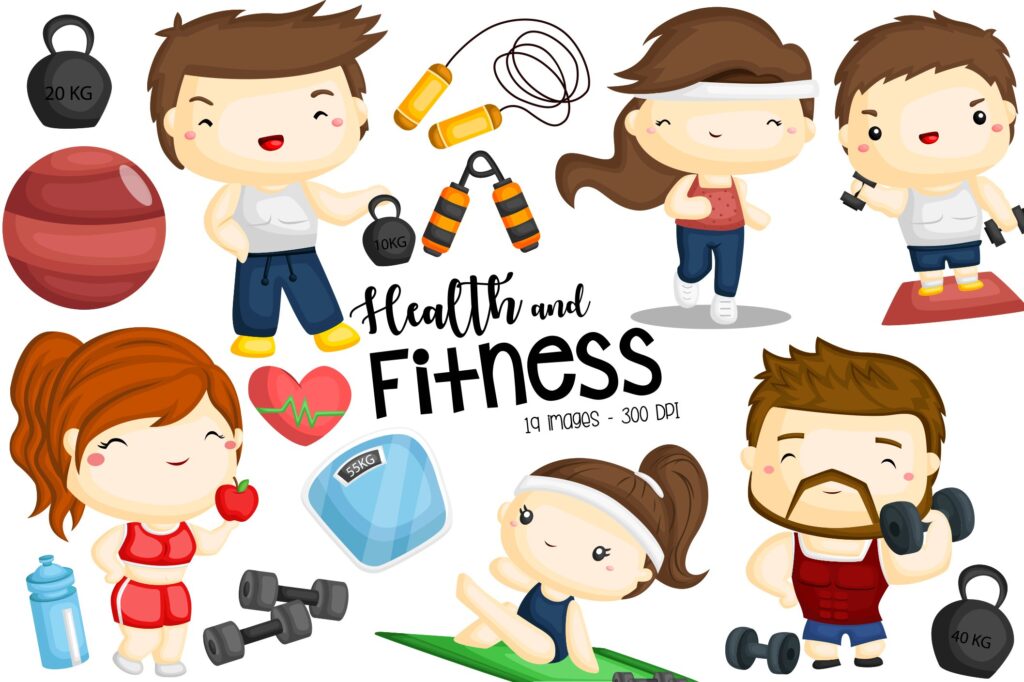Table of Contents
ToggleThe Ultimate Guide to Fitness: Transform Your Body and Mind
Introduction
In today’s fast-paced world, maintaining fitness has become more important than ever. Whether your goal is weight loss, muscle gain, strength building, or overall health, fitness plays a key role in living a long and energetic life. But fitness is not just about lifting weights or running on a treadmill—it’s about creating a balanced lifestyle that combines exercise, nutrition, sleep, and mindset.
In this blog, we’ll cover everything you need to know about fitness, including workout plans, diet tips, benefits, and lifestyle changes. If you are someone searching for fitness tips for beginners, fat loss workouts, or healthy diet for muscle gain, this complete guide is for you.

What is Fitness?
Fitness is the state of being physically and mentally healthy. It involves:
Cardiovascular endurance – Heart and lung health.
Muscular strength – Ability to lift and push weight.
Flexibility – Range of motion in joints.
Balance & coordination – Stability in movements.
Mental health – Stress management and confidence.
Being fit doesn’t mean having six-pack abs only—it means having the energy to perform daily tasks with ease, prevent diseases, and enjoy a better quality of life.
Benefits of Fitness
Weight Loss and Fat Burn
Regular exercise helps burn calories and reduces excess body fat.Muscle Gain and Strength
Strength training improves muscle growth and boosts metabolism.Improved Heart Health
Cardio workouts reduce the risk of heart diseases, high blood pressure, and diabetes.Better Mental Health
Exercise releases endorphins (happy hormones), reducing stress and anxiety.Boosted Immunity
A fit lifestyle strengthens your immune system and helps fight infections.Longer Lifespan
Studies show fit individuals live healthier and longer lives.
Best Fitness Exercises
A perfect fitness routine should include strength training, cardio, mobility, and flexibility exercises.
1. Strength Training
Push-ups
Pull-ups
Squats
Deadlifts
Bench Press
Dumbbell Rows
2. Cardio Workouts
Running / Jogging
Cycling
Jump Rope
High-Intensity Interval Training (HIIT)
Swimming
3. Flexibility & Mobility
Yoga
Pilates
Stretching routines
Foam rolling
👉 Pro Tip: For fat loss, combine HIIT + strength training. For muscle gain, focus on progressive overload in weightlifting.
Fitness Diet: What to Eat for Best Results
Nutrition makes up 70% of your fitness journey. Without a proper diet, even the best workouts won’t show results.
1. For Fat Loss
Eat in a calorie deficit (burn more calories than you consume).
Focus on lean proteins (chicken, eggs, fish, tofu).
Add fiber-rich foods (oats, vegetables, fruits).
Avoid junk food, sugar, and alcohol.
2. For Muscle Gain
Eat in a calorie surplus (consume more than you burn).
Prioritize protein intake (1.6–2.2g per kg of body weight).
Add complex carbs (rice, sweet potato, whole grains).
Include healthy fats (nuts, olive oil, peanut butter).
3. General Fitness
Drink at least 3–4 liters of water daily.
Eat balanced meals with carbs, proteins, and fats.
Limit processed foods.
Best Time for Exercise: Morning vs Evening
Many people ask: What is the best time to work out?
Morning: Boosts metabolism, improves discipline, and keeps energy high throughout the day.
Evening: Strength levels are higher, body is more flexible, and workouts may feel easier.
👉 The best time is the one you can stick to consistently.
Fitness Tips for Beginners
Start slow, stay consistent – Don’t push too hard in the first week.
Set realistic goals – Focus on progress, not perfection.
Track your workouts – Use a journal or fitness app.
Prioritize form over heavy weights – Prevents injuries.
Rest and recovery – Muscles grow when you rest, not when you train.
Common Fitness Mistakes to Avoid
Skipping warm-up and cool-down.
Following extreme crash diets.
Comparing progress with others.
Overtraining without proper recovery.
Ignoring sleep and hydration.
Fitness Lifestyle: Beyond the Gym
Fitness is not just about exercise—it’s about your daily lifestyle.
Sleep: Aim for 7–9 hours of quality sleep.
Stress management: Practice meditation or yoga.
Stay active: Take the stairs, walk 10k steps daily.
Consistency: Small daily habits matter more than occasional hard efforts.
FAQ
1. How many hours should I work out daily?
45–60 minutes is enough for most people.
2. Can I lose fat without exercise?
Yes, with a calorie deficit diet, but exercise makes fat loss faster and healthier.
3. Should I do cardio every day?
3–5 days a week is ideal. Too much cardio may lead to muscle loss.
4. Is gym better or home workout?
Both can be effective. Gym offers equipment, but home workouts save time and money.
5. How long does it take to see fitness results?
Visible changes usually take 8–12 weeks with proper diet and exercise.